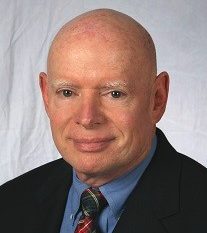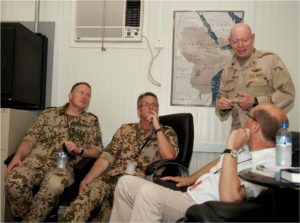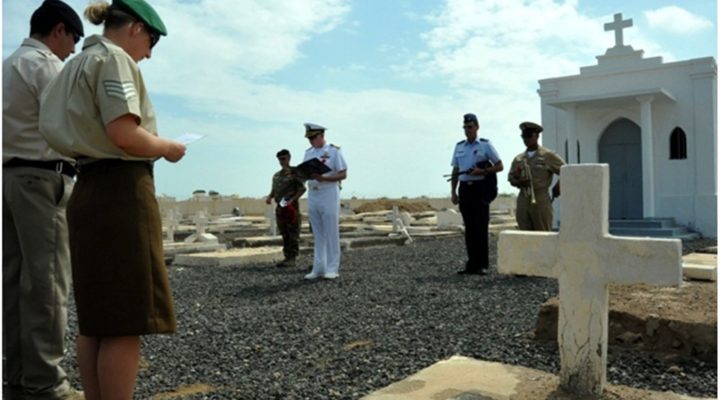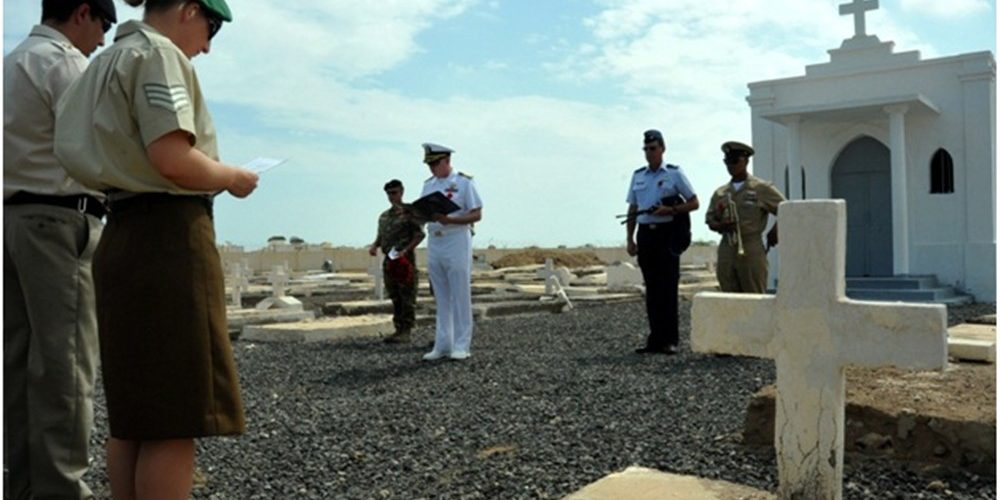Military chaplains typically deploy to combat zones with things like crucifixes, Bibles or menorahs. Gerry Hutchinson, a retired Navy captain, always took a banjo.
“I played it in multiple services with the Marines in Afghanistan,” he said. “If I got on a helicopter to go to remote FOB (forward operating base), I took my banjo.”

Gerald Hutchinson
In August, Hutchinson will retire from his position as endorser of chaplains and pastoral counselors for the Cooperative Baptist Fellowship, a position he has held since 2014. Previously he served 26 years as a Navy chaplain and worked in the ministries section of the Southern Baptist Home Mission Board.
CBF announced July 21 that Renée Lloyd Owen, executive director of spiritual health at Wellstar Health System in Marietta, Ga., will succeed Hutchinson as the Fellowship’s endorser of chaplains and pastoral counselors.
“She will be the first endorser whose entire career has been as a CBF-endorsed chaplain,” Hutchinson explained. “We are growing our own now. And she is the first woman endorser. That’s exciting, too.”
Hutchinson said retirement will be filled with grandchildren, service through Smoke Rise Baptist Church in Stone Mountain, Ga., where he is a member, and a lot of banjo playing. “Occasionally I also play the ukulele.”
He spoke with Baptist News Global about his career and what it’s like to watch the swelling ranks of CBF chaplains and pastoral counselors.
Where were you endorsed as a military chaplain?
The first 13 years I was endorsed by the Southern Baptist Convention and then my second 13 years I was endorsed by CBF. The precipitating factor for that is that I worked at the old Home Mission Board when I joined the Navy in 1988 and was endorsed by them. I was on staff there from 1987 to 2001. In May of 2001, the staff was asked to sign an affirmation of the “Baptist Faith and Message 2000”, and I couldn’t do that. Interestingly, neither could George Pickle.
It took them a few weeks to come to us and say you can either resign or you can be fired. Each of us chose to resign. I decided if the SBC didn’t want me working for them, I was not going to maintain my endorsement with them. So, I shifted to CBF. That’s when George landed as the first full-time endorser for CBF.
“Before the end of decade there will be more chaplains in the U.S. than pastors of churches.”
What was it like having George as your endorser after having known him as a friend for many years?
Yes, George and I were good friends and colleagues. When I came to the board in 1987, things were beginning to slowly change in a much more rightward, fundamentalist direction. I loved the work I did in Christian social ministry so I hung in there longer than I should have. George and I were colleagues who commiserated over the years, and we had a special bond from each of us refusing to sign the “Baptist Faith and Message.” It wasn’t mentor/mentee at CBF. We remained good friends.

CAMP LEMONNIER, Djibouti (June 6, 2012) – U.S. Navy Chaplain (Capt.) Gerald Hutchinson, Combined Joint Task Force – Horn of Africa director of religious affairs, speaks to visiting German chaplains. (U.S. Air Force photo by Senior Airman Lael Huss)
Aside from the pandemic, what has changed over the years with CBF chaplains and pastoral counselors?
We have enjoyed positive net growth the entire 22 years that CBF has been endorsing chaplains and pastoral counselors. In that time, CBF has endorsed a total 1,136 people, and of that number 813 are actively serving. During my tenure, 242 people have been endorsed.
How would you describe the state of chaplaincy?
The fact is, there are expanding opportunities for chaplains today. It’s a growth field. Some researchers have determined that before the end of decade there will be more chaplains in the U.S. than pastors of churches. So, our efforts to organize and provide support to our current chaplains is an ongoing work as is our effort to cast a vision to seminarians and ministers who are considering what their roles will be going forward.
How has the pandemic impacted the people you endorse?
It has posed a challenge to health care chaplains and even to counselors who are working with people facing physical and mental health challenges.
In the Navy we talk about ministry of presence. In health care chaplaincy, that’s a big part of it. That initial visit in the emergency department or during hospital check-ins is so important for chaplains and patients.
“Chaplains and all health care personnel are seeing death at a rate they never have seen before.”
But given the lack of PPE (personal protective equipment), and the risk of contracting the virus, many chaplains cannot be present with patients or their families. And that touch — that look in the eye — and all the human tools chaplains use to care for others, they are not able to do that. It’s been quite disconcerting to many chaplains.
And chaplains and all health care personnel are seeing death at a rate they never have seen before, and just trying to process that is extremely difficult.
How has CBF responded to those realities?
In the early days we ramped up web pages with resources for COVID-19 and web talks with chaplains and a variety of other online resources for chaplains and counselors. We are resourcing our folks with information and support. We talk about things like compassion fatigue and doing whatever we can to be supportive for our folks in what they are experiencing.
Have you endorsed any new counselors or chaplains since the pandemic began?
Absolutely. We just endorsed 12 people earlier this month, the vast majority of which are in health care settings. People are still feeling the call.
The work goes on. People are finding that Clinical Pastoral Education is an entry point where they learn so much about themselves and they learn to be a non-anxious presence with others in crisis. They find they have a knack for that. It’s really fulfilling to them.
In addition to music, what’s next for you in retirement?
I am going to serve as the chaplain of my Veterans of Foreign Wars post. And I am going to do some things I have always wanted to do. I have always enjoyed being outdoors, and I want to be a volunteer in the National Parks system. I also want to be a volunteer at the Jimmy Carter Presidential Library and Museum. I want to be a docent, but that’s not really available right now.


